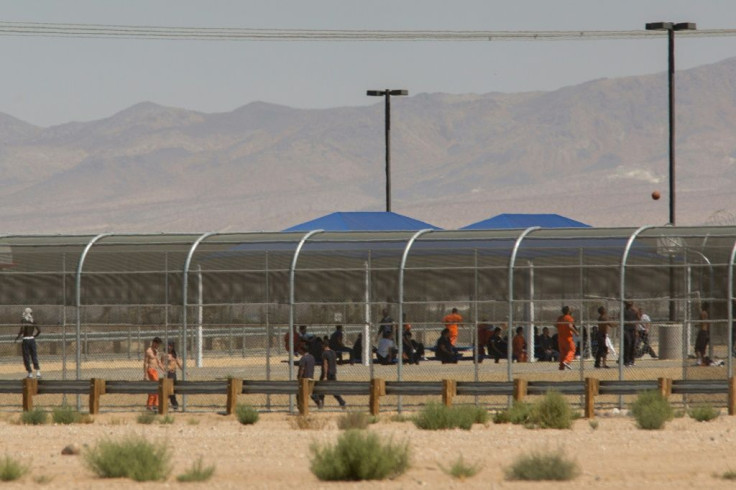Second Immigrant In ICE Detention Dies Of COVID-19; 1,200 Test Positive
The worst decision that 34-year-old immigrant Santiago Baten-Oxlag made was to get behind the wheel of a car under the influence, presumably of alcohol. He was arrested on March 2 and his immigrant status got him tossed into the legal purgatory of the Stewart Detention Center, a privately operated prison near the state's border with Alabama under the custody of the U.S. Immigration and Customs Enforcement (ICE).
A first-time offender with legal status in Georgia might face at least one night in jail, probation, and a suspension of driving privileges. Instead, Baten-Oxlag contracted COVID-19 and was sent to a hospital in Columbus, Georgia where he died Sunday (May 24) from "coronavirus complications." It was not disclosed if he had any underlying medical conditions.
Even before the pandemic, the detention of immigrants at ICE detention centers has been a touchy topic. COVID-19 has only exacerbated the situation.
In a confined prison or a detention center, it is almost impossible to follow guidelines to minimize the risk of contagion by social distancing. Shared toilet facilities and a lack of soap and hand sanitizer prohibit the level of personal hygiene required to thwart the contagion.
As of last week, ICE was holding more than 26,000 people in its sprawling network of local jails and private prisons, the largest immigration detention system in the world. ICE has screened nearly 2,400 for the virus so far with around 1,200 testing positive.
Baten-Oxlag is the second known immigrant to die of COVID-19 while in ICE custody. The first was an El Salvadorian immigrant named Carlos Ernesto Escobar Mejía, who died of coronavirus complications at a San Diego-area hospital after being transferred there from a for-profit prison ICE uses to hold hundreds of detainees in southern California. Mejia, age 57, had several pre-existing health conditions.
Advocates for the immigrants as well as Democratic lawmakers reacted to the situation requesting that ICE should "dramatically reduce its nationwide detainee population" because the detained immigrants can't adequately protect themselves from the contagion while in a "congregate environment."
More than 900 immigrants deemed by ICE to be at heightened risk of severe illness if they contract COVID-19 have been released and lawsuits filed by groups like the American Civil Liberties Union, have resulted in the release of over 370 detainees.
Advocates say that the detainees include about 4,600 asylum-seekers who have demonstrated a credible fear of being persecuted or tortured in their home countries and do not pose any threat to the public.
Instead of facing DUI charges in Georgia, Baten-Oxlag was sent to the detention center to face possible deportation. An immigration judge allowed him to voluntarily leave the U.S. to avoid the more severe consequences of formal deportation.
"At the time of his death, Baten was awaiting departure from the United States," the ICE notification read.

© Copyright IBTimes 2025. All rights reserved.





















